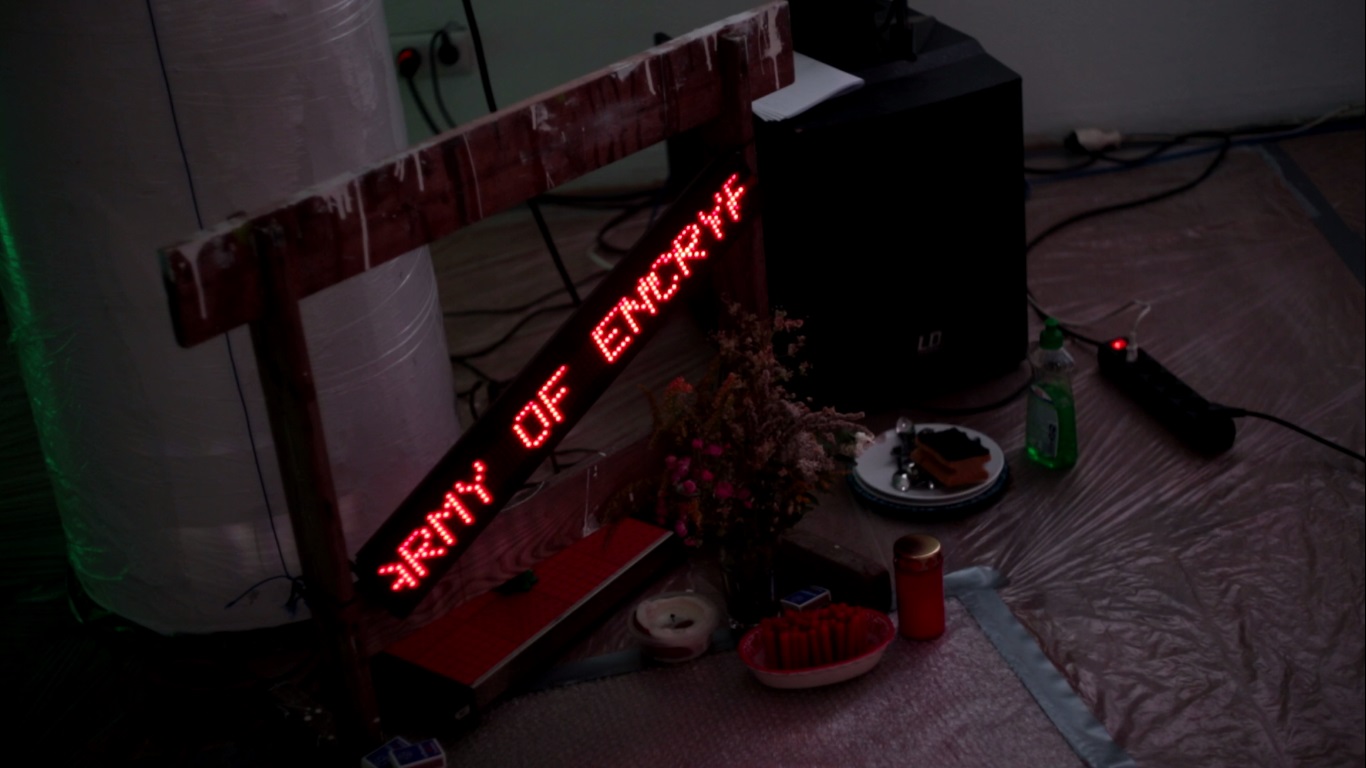Seit 2006 finden in der Lettrétage ca. 120 öffentliche Literaturveranstaltungen jährlich statt – Lesungen, Workshops, Diskussionsrunden, literarische Performances und Formate dazwischen. Bekannte und unbekannte Autor*innen und Künstler*innen verschiedener Sprachen und Nationalitäten sind hier schon aufgetreten.
Seit 2013 liegt der Programmfokus u.a. auf neuen Wegen der literarischen Präsentation und Live-Produktion: Dazu zählen u.a. die internationalen bzw. transnationalen Literaturfestivals „Soundout!“, „¿Comment!“, „Berlinisi“ und „Syn_Energy“, aber auch das viel beachtete Netzwerkprojekt „CROWD“ und multimediale Projekte wie die Reihe „CON_TEXT“ oder das „Poetry Audio Lab“. Eine vollständige Liste der Lettrétage-Projekte finden Sie hier.
Als Ankerinstitution für die freie Literaturszene Berlins stellt die Lettrétage außerdem ihre Räume für Literaturveranstaltungen aller Art zur Verfügung. Zahlreiche freie Veranstalter*innen nutzen unsere Infrastruktur regelmäßig – für Literatur-Workshops, Lesereihen in verschiedenen Sprachen und Buchpräsentationen. Mehr zu den Möglichkeiten der kostenlosen Raumnutzung erfahren Sie hier.
Auf dieser Seite präsentieren wir einen nicht vollständigen Einblick in unser vergangenes Programm.
Veranstaltungen
Termin Informationen:
-
Fr31Mrz202320:00 UhrLettrétage in der Veteranenstraße 21, Eintritt: 5€
The first woman/Die erste Frau
Reading and conversation with Jennifer Nansubuga Makumbi

(c) Joerg KandzioraKirabo grows up at her grandparents' in rural Uganda. Despite the love she experiences, the older she gets, the more questions come to her mind, the answers to which the adults around her seem to know, yet try with all their force to conceal: Where is her mother, whom she has never met? Why did she leave her daughter behind back then and chose a life without her? Clever and headstrong, Kirabo begins to get to the bottom of these questions.
THE FIRST WOMAN (DIE ERSTE FRAU in German by Alakati Neidhardt) tells a cross-generational story about growing up, first love, being and becoming a woman, and the search for one's own roots. A story between traditional and modern feminisms against the backdrop of Idi Amin's violent regime in Uganda in the 1970s. In doing so, it demonstrates how overpowering Western ideas of feminism spread to African countries after the World Conference of Women in 1975 and displaced local ideas. Jennifer Makumbi's novel pleads for mutual listening and recognition of different ideas of feminism without losing sight of the real issue: Equality between all genders.
 (c) Ben Torkington
(c) Ben TorkingtonJennifer Nansubuga Makumbi is an author of novels and short stories from Uganda. She holds a PhD from the University of Lancaster (UK) and now lives in Manchester. Her debut novel, KINTU, sparked a worldwide discussion in 2014 about the political significance of storytelling.
Continue reading for the German translation:
Lesung und Gespräch mit Jennifer Nansubuga Makumbi

(c) Joerg KandzioraKirabo wächst bei ihren Großeltern im ländlichen Uganda auf. Trotz der Liebe, die sie erfährt, drängen sich ihr, je älter sie wird, zunehmend Fragen auf, deren Antworten die Erwachsenen um sie herum scheinbar kennen, und doch mit aller Macht zu verbergen versuchen: Wo ist ihre Mutter, die sie nie kennengelernt hat? Warum ließ sie ihre Tochter damals zurück und entschied sich für ein Leben ohne sie? Klug und eigensinnig beginnt Kirabo diesen Fragen auf den Grund zu gehen.
DIE ERSTE FRAU (Deutsch von Alakati Neidhardt) erzählt eine generationenübergreifende Geschichte über das Erwachsenwerden, die erste Liebe, das Frau-Sein und Frau-Werden sowie die Suche nach den eigenen Wurzeln. Eine Geschichte zwischen traditionellen und modernen Feminismen vor dem Hintergrund des gewaltvollen Regimes von Idi Amin im Uganda der 1970er Jahre. Dabei führt er vor Augen, wie übermächtig westliche Vorstellungen von Feminismus sich nach der World Conference of Women 1975 auch in afrikanischen Ländern verbreiteten und dortige Ideen verdrängten. Jennifer Makumbis Roman plädiert für gegenseitiges Zuhören und Anerkennen verschiedener Vorstellungen von Feminismus, ohne das eigentliche Anliegen aus den Augen zu verlieren: Gleichberechtigung zwischen allen Geschlechtern.

(c) Ben Torkington Jennifer Nansubuga Makumbi ist Autorin von Romanen und Kurzgeschichten aus Uganda. Sie promovierte an der Universität von Lancaster (GB) und lebt heute in Manchester. Schon ihr Debütroman KINTU löste 2014 eine weltweite Diskussion über die politische Bedeutung des Geschichtenerzählens aus.
Workshops & Infoabende
Termin Informationen:
-
Sa24Nov2018So25Nov201810:30Registration Fee: 125€
Here & Elsewhere: Place Writing
Workshop with Paul Scraton and Marcel Krueger

© Joseph Carr Whether you are writing essays, blogs, a journal of your travels or the story that will become a novel, creating a strong sense of place is crucial. Suitable for anyone interested in turning the sights, sounds and soul of place into engaging prose, this workshop will explore place writing in all its facets and why through the wide world of literature, location matters.
Over two days, participants will discover key works of place writing and learn about the different techniques to be found within this broad genre, including journalism, memoir and creative non-fiction accounts. Through a series of readings and exercises (which will include a ramble through the neighbourhood), participants will try a variety of fresh and creative approaches to writing about place and will work on a draft of a short piece of place writing - fiction or non-fiction - to be considered for publication on the Elsewhere: A Journal of Place blog.

© Katrin Schönig Paul Scraton is a British-born writer and editor, based in Berlin. He is the editor in chief of Elsewhere: A Journal of Place and the author of a number of creative non-fiction books. Built on Sand, a collection of stories from Berlin, is his debut work of fiction and will be published by Influx Press in 2019. 
© John Farrell Marcel Krueger is a German writer and translator living in Ireland. For Berlin – A Literary Guide for Travellers he has provided new translations. His articles and essays have been published in The Guardian, the Irish Times, Slow Travel Berlin and CNN Travel and he also works as the Books Editor of Elsewhere: A Journal of Place. His latest book Babushka's Journey - The Dark Road to Stalin's Wartime Camp explores the wartime experiences of his grandmother Cilly through a travel memoir.
